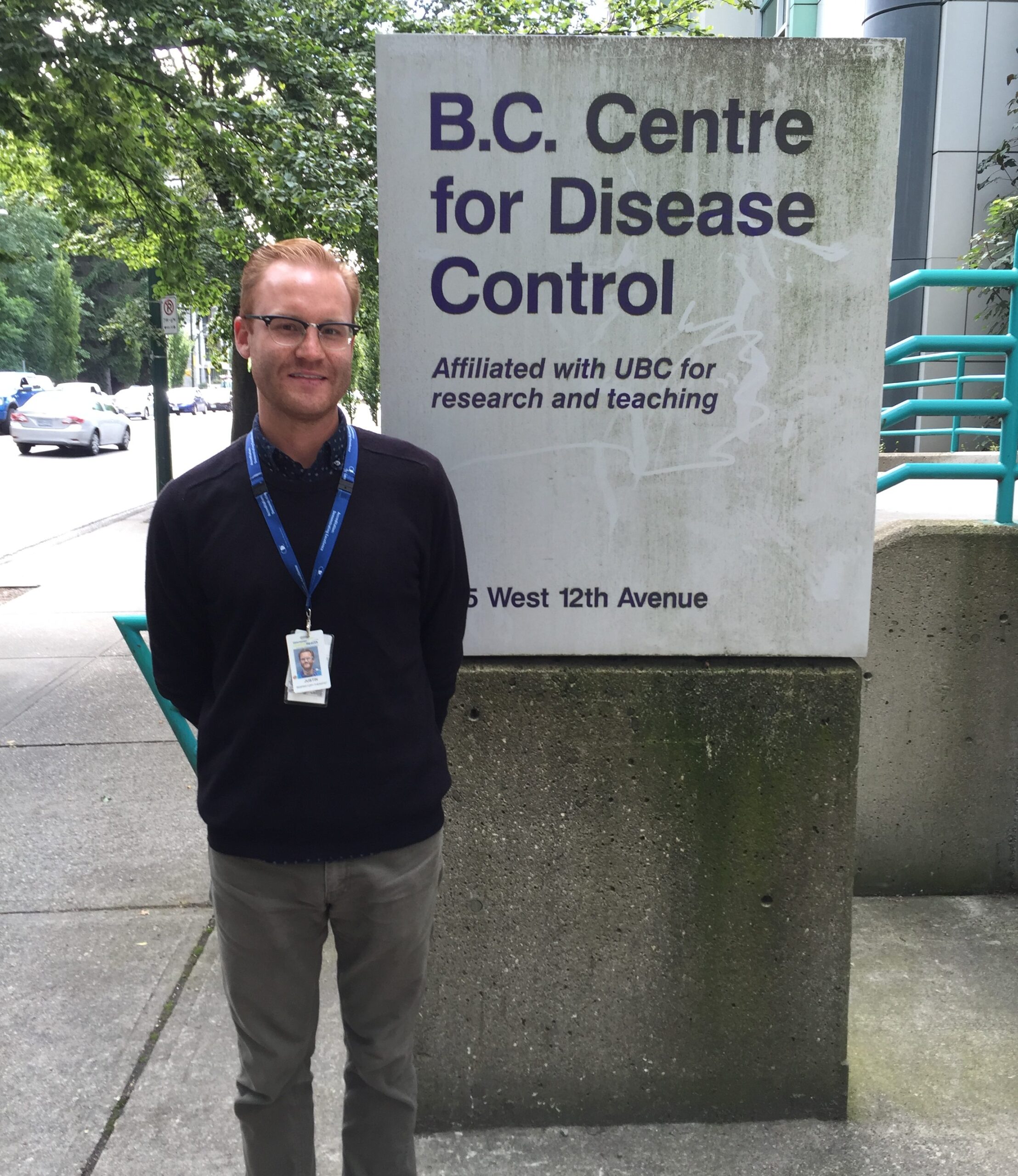
We acknowledge that the UBC Vancouver campus is situated on the traditional, ancestral, and unceded territory of the xʷməθkʷəy̓əm (Musqueam).
Meet Our Alumni: Justin Sorge, Outbreak Coordinator
Meet Our Alumni: Justin Sorge, Outbreak Coordinator
Outbreak Coordinator at the B.C. Centre for Disease Control

Having sat in on Ebola prevention task force committees during his practicum, and currently working on the Zika virus outbreak task force, Justin Sorge may just be the person to go to when the zombie virus eventually hits.
As Outbreak Coordinator for the B.C. Centre for Disease Control (BCCDC), Justin works on infectious disease surveillance, including creating provincial reports, as well as project coordination and management, updating websites and production of a bi-monthly newsletter. Justin says it’s exciting to work on an emerging outbreak and be part of containing it, and getting word out about containment and prevention of contraction and transmission.
Justin says his skills lie in being behind the scenes doing the research. He has always been interested in epidemiology and says some of the more administrative tasks such as project management will make him a better epidemiologist.
But following his studies in disease communication and control, he is a little more critical of Hollywood movies and their treatment of disease outbreaks. In fact, SPPH 520 – Control of Communicable Diseases involves watching the movie ‘Contagion’, one of the more accurate films.
“All systems need to work hand in hand, but to take a step back and have a hand on a greater scale is where I want to be and I’m happy to be there right now.”
Justin worked as a respiratory therapist prior to completing a Bachelor of Science in Health Science and the Master of Public Health, graduating in 2015. He got into public health to move away from more reactionary healthcare to preventative, where he can affect a population. While the program workload was a challenge, the content was presented in a very understandable way, he says. SPPH has a great culture of professors and instructors, and Justin particularly enjoyed the advanced epidemiology classes.
During his time at UBC, he was awarded an Aboriginal Graduate Fellowship, and he says it felt wonderful to have such a distinction. As a member of the Gitwangak First Nation, Justin has been inspired by Indigenous students before him, and says it’s good to see the First Nations Health Authority working hand in hand with the BCCDC when it comes to research provided from Aboriginal communities.
He says it is absolutely important for Indigenous students to become leaders in public health, and advises students to apply for the Fellowship and other available opportunities.
“There’s always room for Jello.”
His advice for the field of public health is to engage with the network you form as part of the program, and step into other people’s networks as well. His peers in the program were able to put him in touch with those within the BCCDC, and in a competitive environment, having someone on the inside can get you a lot further in the job hunting process. For current students, Justin advises finding a group of peers you feel comfortable studying with, but to remember to relax as well. He still plays in a softball team started during his time at the program, which he says is a great way to chill out.
His memories about the program are all about Tuesdays. Having been on campus all day studying, he would meet up with his classmates for cheap drinks Tuesday and watch hockey, getting to know his peers as friends and not just fellow students. And to take a break from studying, Justin would also invest in green Jello from the cafe, before heading back to the books.
